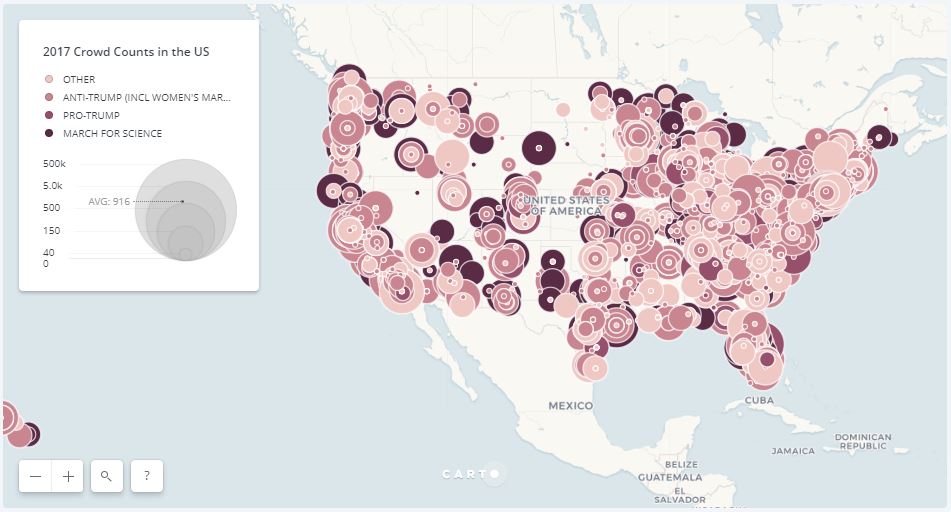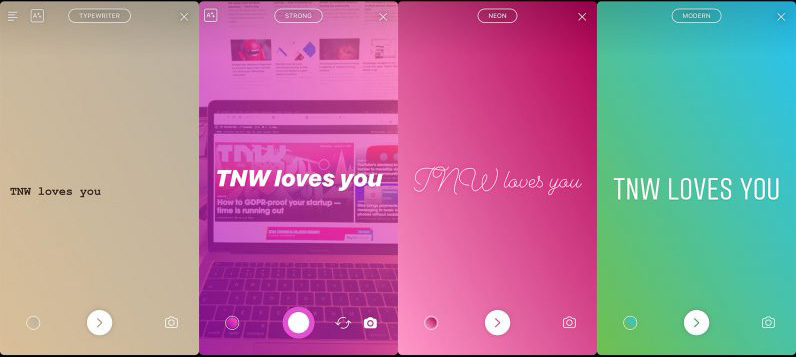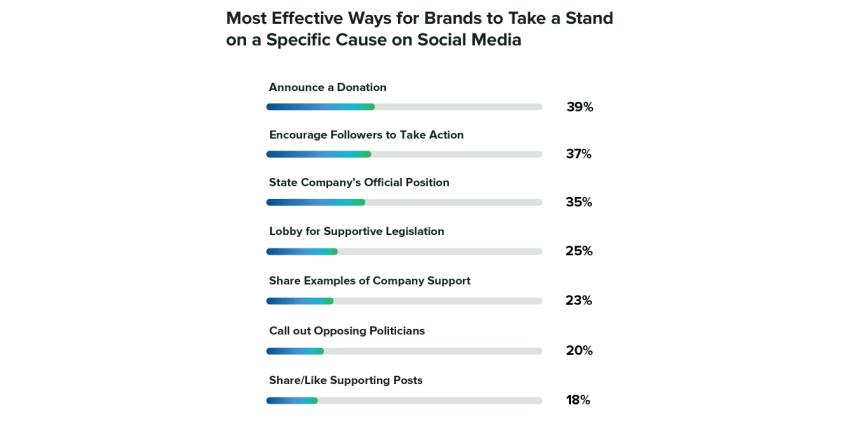The week in social: women's march, youtube ads, and political stands

The women’s march in social
Women and men across the U.S., and indeed across the world, gathered over the weekend to march for civil rights, awareness and protest. Turnout estimates for marches range from 5 million to 9 million people in the U.S. alone, nearly 2.8% of the country population at the high end. While taking the streets, protesters likewise took to social media to spread their message far and wide. At the time of this writing, #womensmarch appeared 2.4 million times, primarily on Twitter and Instagram.
“Never doubt that a small group of thoughtful, committed people can change the world. Indeed, it is the only thing that ever has.” – Margaret Mead

Read more at Washington Post
Facebook will rank news publishers
“There’s too much sensationalism, misinformation and polarization in the world today,” wrote Zuckerberg this week. To improve the news feed, Facebook’s new ranking system prioritizes news based on the ranked trust of the source. An upcoming user poll will determine the ranks for a variety of news sources. We look forward to seeing the poll, and additionally, its effect on the quality Facebook news in 2018.
Read more at Ad Age
Twitter alerts users they’ve been trolled
Twitter deleted more than 50,000 accounts last week. Following the account removal, Twitter alerted 677,775 users that they had liked, shared or commented on content that came from suspected front seeking to influence the election. Some users expressed protest, as the email did not specifically identify the content in question. The effect of the content remains a point of debate. Meanwhile, it’s clear that Twitter is setting a new bar for transparency with its users.

Read more at Gizmodo
YouTube shakes up their ad model
YouTube revealed two major changes this week. The first defines the types of content that cannot be monetized. The second sets the barrier of entry to monetize content at all. In short, YouTube will no longer allow hateful, demeaning content; nor will they allow “family entertainment” characters to be used in displays of inappropriate behavior. As for monetization, content creators can no longer add ads to their work until they’ve amassed 1,000 followers and 4,000 watched hours. These changes help moderate content, which is good for value-minded advertisers and creators. However, new and niche creators will have a harder time getting above the noise floor.

Read more Wired
Snapchat incorporates deep-links
Deep linking enables a platform to provide a link that not only opens an app, but navigates to a specific section. Platforms such as Google and Facebook have been doing this for some time, and now Snapchat is joining the ranks. For instance, an ad buyer may target users that have an app installed. Then, in the story feed, a link may appear to prompt the user to explore a new feature of that app. An engagement takes a user straight to that feature, and gives ad buyers easier, more direct access to their audiences.
Read more at Adweek
WhatsApp launches for business in select markets
WhatsApp began verifying business accounts back in September. Now, a feature-rich business app is coming to select markets. The feature enables an easy exchange of information, status and support between between businesses and consumers. WhatsApp states that the feature will continue to grow, targeted at businesses with large businesses with a global consumer base.
Read more at TechCrunch
Instagram’s type feature
A picture is worth 1,000 words. Alternatively, the pen is mightier than the sword. Facebook’s colored backgrounds have invigorated the text-only status, and Instagram may follow suit. A new feature spotted in the Stories section of Instagram will allow users to add stylized text to their story posts. The feature is reportedly only being tested, but we expect to see it more widely distributed soon.

Read more on The Next Web
Consumers want brands to take a stand
Multiple predictions cited transparency as a key element of brand strategy for 2018. Sprout Social released a consumer survey that reports 66% of consumers want brands to take a political stand. The study revealed that companies that take positions on political issues will see an increase in promotion and purchases from like-minded consumers. However, it’s more likely that liberal oriented consumers will take those actions. Conservative viewers still take action, but to a lesser degree than their counterparts.

Read more at Marketing Land
Facebook’s deal on music rights
Global Music Rights, HFA/Rumblefish, and Kobalt Music Publishing have all penned deals with Facebook. The social giant will join the music giants to provide content to Facebook users. The details of the contract indicate that content creators will be able to use rights-protected music uploaded and shared on the network. This move seems to mirror YouTube’s Music Policies, where music copyright holders can define how other users may use their work.
Read more at Adweek